Director General of the Organization of the Eastern Caribbean States (OECS), Dr. Didacus Jules, Thursday, outlined several initiatives he believes Saint Lucia can adopt as an independent country moving forward.
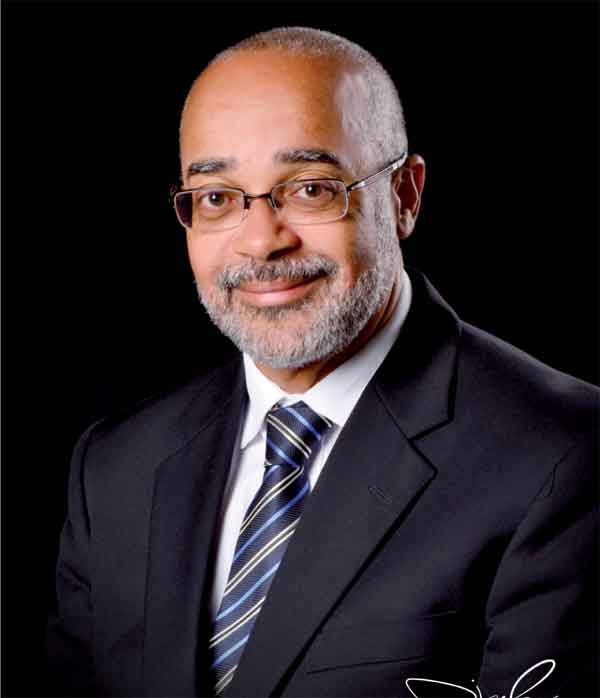
Jules was at the time delivering a lecture to mark Saint Lucia’s 43rd Anniversary of Independence at the Financial Administrative Center, Castries under the theme ‘Building a Nation, Shaping a Society’.
The initiatives he listed are as follows:
1. Defining the national ideology – the vision of the St Lucia that we want:
• A deep and wide process of national consultation and dialogue should be undertaken that requires that we move beyond the rhetorical flourishes to tangible demonstrations of common purpose. This process must be co-led responsibly by our leaders (political and social) especially in the volatile, uncertain and complex times that we now face. And leaders must listen more than they speak. “In times of difficulty, what we want from our leaders is not the benefit of their expertise but the benefit of their humility” (Gladwell).
• Let difference be a distinction and not a division… so let our tribal affiliations be they religious or political or social not supersede our national identity.
2. Institutional Revitalization – the invigoration of our national institutions with a responsive dynamism starting with the democratization of Parliament and our governance mechanisms, the restoration of service in the public service and consumer rights in the private sector. The malfunction of institutions is a major factor accounting for why nations fail.
• Reshaping our systems of governance through constitutional reform that establishes clear processes for upholding integrity, and for grassroots consultation.
• Making Parliament a more effective instrument of governance and ensuring continuity of national development initiatives. Can approval for example, of national development plans be done by Parliament so that we are not subject to a “one step forward; two steps backward” waltz between administrations?
• From conversation with our erudite Speaker of the House, I was advised that Parliament does have a window of opportunity that can be turned into a door opening wide avenues of people consultation and participation in the business of governance. And I quote his advice: “Standing Order 48(2) makes provision for a period of time to elapse between the First and Second readings of a Bill. Regarding the first reading of a Bill, all this entails is for the name of the Bill to be read out in the House. Debate takes place upon the second reading. The period between the first and second readings Page 19 of 26 can be utilised for public discourse on the said Bill.”
• A golden opportunity to bring Parliament to the community. Imagine significant legislation that has farreaching implications for specific sectors being brought by specialized House Committees to town hall meetings or special seminars for deep discussion and consultation.
3. Design policies/create (or strengthen) mechanisms of economic inclusion – we do live in a capitalist society but rising inequality globally is fueling xenophobia, anger, crime. Speak to youth engaged in criminal activity and you will come to appreciate that despair/hopelessness is what fuels the sense of “live hard; die fast”. Some examples of economic inclusion:
• Strengthen and empower the Credit Unions so that they can broaden financial inclusion, provide avenues for participation of even the poorest in investment through mutual funds, innovate on susu type revolving savings plans and much more.
• Require foreign investors to reserve a percentage of all investments for local participation by citizens at home and abroad through local financial intermediary institutions and using the Eastern Caribbean Securities Exchange.
4. Re-Think Education – education can no longer be just a certification thing – not just knowledge but human and technical competencies. Malcolm Gladwell reminds us that “the key to good decision making is not knowledge – it is understanding. We are swimming in the former [knowledge] and we are desperately lacking in the latter [understanding].”
Our Education system must produce critical and creative thinkers, caring and committed citizens, empowered entrepreneurial actors equipped with 21st Century competencies. Rethinking Education is the key to the next imperative –
5. Strengthening Civil Society and Empowerment of Citizens. This is particularly challenging in this period of fake news and Page 21 of 26 manufactured consent in social media. There are two dimensions to this necessity:
• One is the need for civic education (from cradle to grave) as an essential tool of empowerment of citizens. Unless you know and understand your inalienable rights as a citizen, a Constitution is only words on a page.
• And civic education is not an academic thing – for as Confucius has said “the essence of knowledge is having it to apply it”. It would be necessary to create or build on existing avenues of civic engagement and empowerment. Elevation of traditions such as the SouSou (embodied in the Credit Union) for financial inclusion and empowerment; the Koudmain – important in building citizen involvement in the improvement of their own communities. The adoption of the Haitian concept of Tetansanm – mechanisms of consultation and discussion (town hall meetings) to engage minds, hands and hearts in common purpose.




![John Paul Estephane, Minister in the Ministry of Tourism and Commerce [Photo Credit: GOSL]](https://thevoiceslu.com/wp-content/uploads/2026/01/John-Paul-Estephane-380x250.jpg)
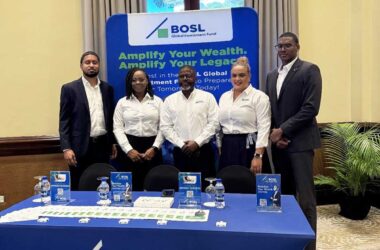
![DIPT-RESDP SAP graduating class [Photo credit : GOSL]](https://thevoiceslu.com/wp-content/uploads/2026/01/DIPT-RESDP-SAP-graduating-class-1-380x250.jpg)

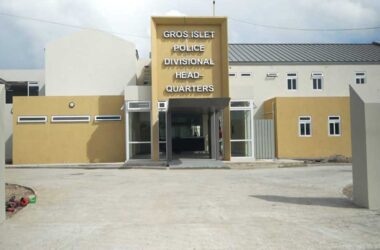

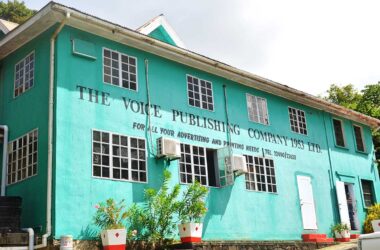
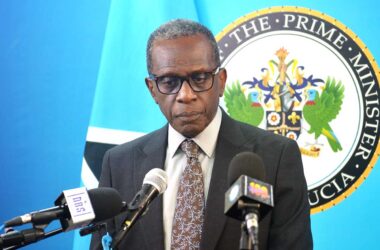
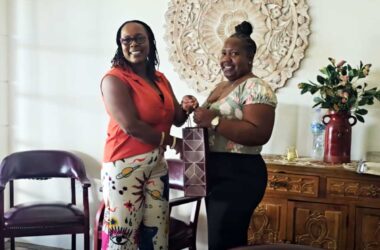

Wow – Didacus Jules with a Tie on !!!